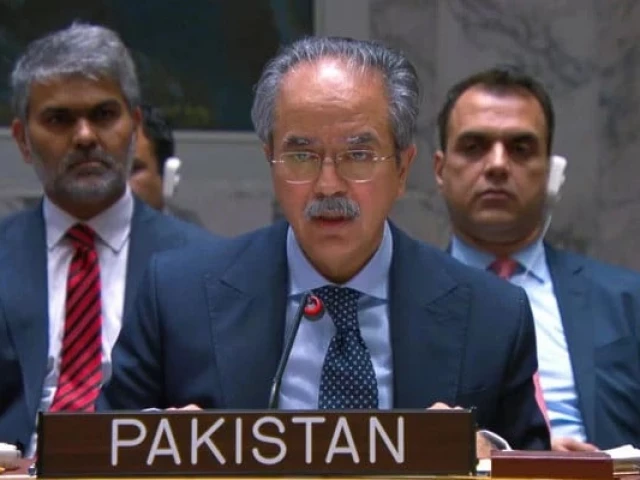UNITED NATIONS:
Reaffirming its commitment to achieve the objective of sustainable development (SDG 7), which aims to guarantee access to clean and affordable energy for all, Pakistan has underlined the need for fiscal space for developing countries, especially those that face a debt service crisis, to respond to the exceptional needs of its population.
“When it comes to Pakistan, we exemplify both the urgency and the opportunity of the global energy transition,” he told a panel of the high -level political forum (HLPF) that he reviewed the progress in SDG 7.
Pakistan is co -chair of the group of sustainable energy friends with a strong approach to achieving SDG7 that aligns with its national development priorities and the broader global agenda.
The HLPF, held under the auspices of the Economic and Social Council, provides a platform for countries to inform about their progress towards the SDGs, including the SDG7.
By pointing out that around 40 million people in Pakistan in 2024 remained without access to electricity, the Pakistani envoy said: “We are firm in our clean energy ambitions; the country has established the objective of achieving 60% renewable electricity by 2030.
“Our energy road map plans to add 13 GW (gigawatts) of new hydroelectric energy, while nuclear energy continues to provide a reliable and low carbon power.” The ambassador equal Iphtikhar added: “A ‘silent solar revolution’ is also being carried out in my country, driven by low import rates, cheap technology and net measurement policies. Estimates show that solar energy already represents approximately 25% of public services electricity in early 2025.”




